11 Common Questions Hijab-Wearing Women are Asked and How to Answer Them
Faith
|
Jan 11, 2023
|
9 MIN READ
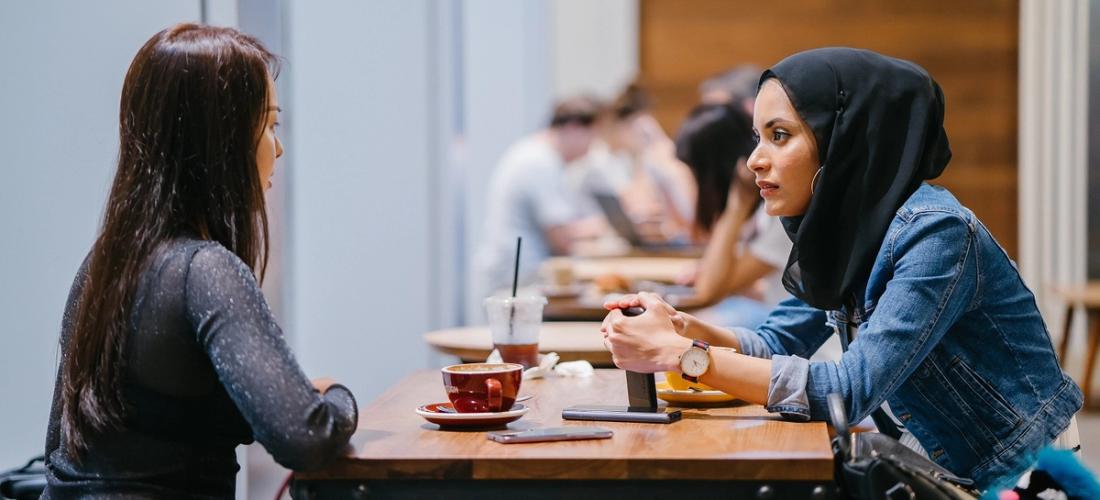
Image source: Pexels
For millions of Muslim women, hijab is an essential act of obedience to Allah (S) and an act of worship. It’s also a visual representation of being Muslim. However, all too often hijab is used as a social and political weapon to marginalize women through stereotypes and misconceptions, which in turn generates situations where someone in hijab may encounter pointed and loaded questions about their choice to don the head covering.
But also, sometimes these questions stem from genuine curiosity and the seeking of knowledge. (Even though for those of us as Muslim women, some of these questions can feel insulting.) Questions about hijab are bound to happen, especially when a woman first starts wearing it. Family members, friends and co-workers may want more information about her motivations to start covering her head and the rules regarding hijab.
We spoke with non-Muslims and Muslims on our Haute Hijab team and in our communities to cultivate some of the most common and difficult questions that Muslim women receive about their hijab, and we researched and worked together to come up with these responses. Below are 11 common questions covered Muslim women are repeatedly asked. When you face these questions as a hijab-wearing woman (and you probably will if you haven’t already), Insha’Allah you can use these answers as a guide or build upon them to properly inform/educate the person asking.
1. Why do you have to cover your head? Is it required?
To the second question, the simplest answer is yes. The Quran outlines a clear requirement for Muslim women to cover their heads as part of an overall observation of a modest dress code, which includes headcovering, loose clothes and fabric that is opaque enough so one’s skin color is not apparent.
Now, just because something is a faith requirement doesn’t mean everyone does it, and this can apply to all faiths. Similarly to when you see that not all Christian or Jewish women cover, although each religion has its own guidelines around it. So, of course you’ll see Muslim women who don’t wear hijab and those who do. Many Muslim women choose to wear hijab to adhere to a divine command, making donning it a demonstration of obedience to the Creator and an act of faith.
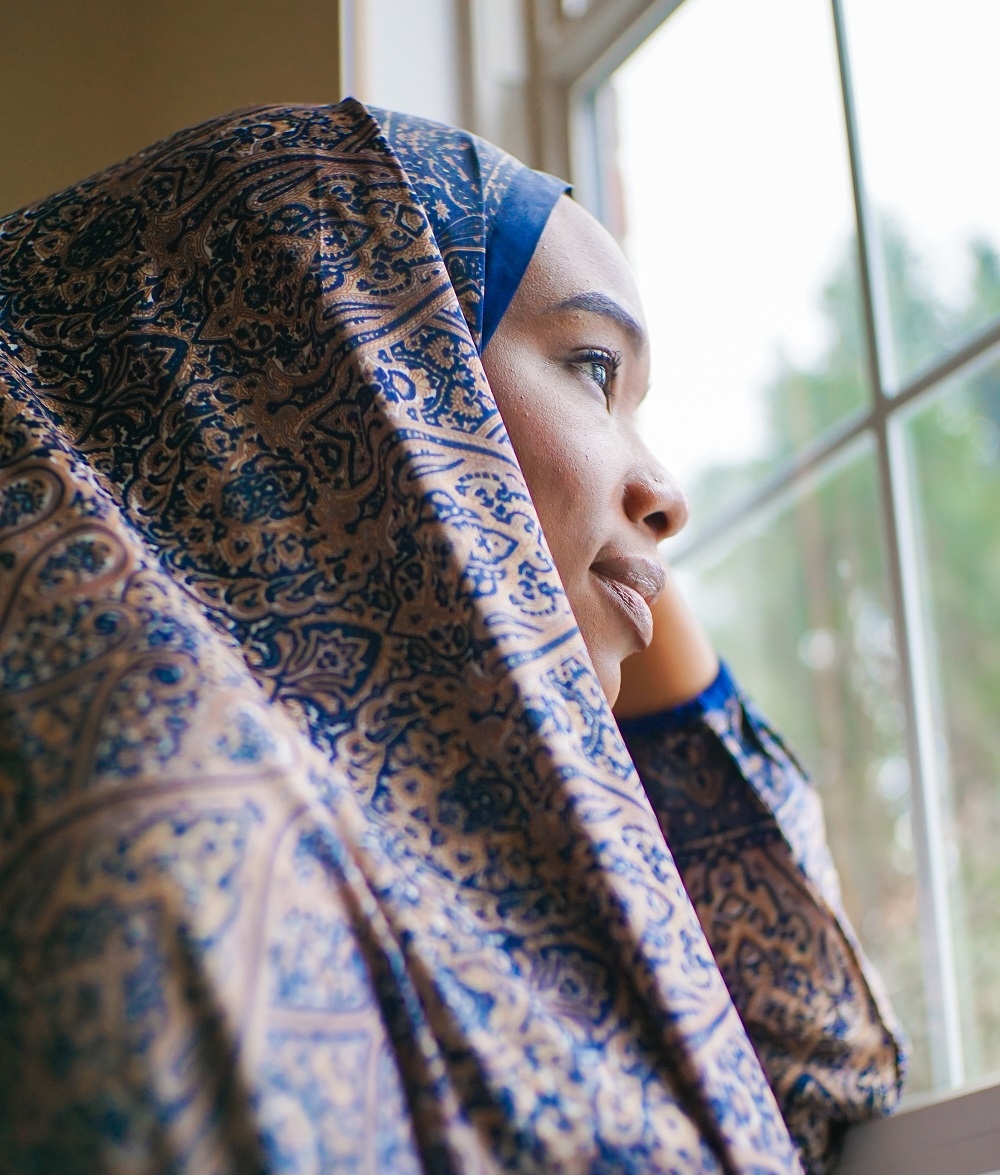
Image source: Hakeemah Cummings
To the first question, the “why” of why many Muslim women choose to cover is vast and varied. And yes,, in some countries wearing hijab is required by the country’s government, so unfortunately “choice” is taken out of the equation. But for the vast number of Muslim women who choose to wear hijab, their reasons are plentiful (ranging from for the sake of Allah (S) to because it is empowering to because it identifies me as a Muslim woman), some of which we’ve covered here.
2. Aren’t you being forced to wear it? What’s wrong with looking good?
Many Muslim women have the liberty to make the choice to wear hijab and do make the choice on their own. The automatic correlation and conflation of hijab with oppression is a common stereotype rooted in Islamophobia and misinformation.
Stereotypes of the oppressed covered Muslim woman plagues societies across the globe, as does the political weaponization of the religious observance of covering one’s head. In Muslim countries like Iran, law enforcement police the wearing of hijab, which has sparked huge protests across the country by Iranian citizens against their government for a variety of deep-seeded reasons that go beyond the country’s forced hijab wearing. Meanwhile, in some countries like France, governments strip Muslim women of their human liberty to choose to cover, outlawing hijab. Thus, Muslim women must push against social and political vices constructed to “force” them to fight for their human rights to exercise their faith at their individual capacities.
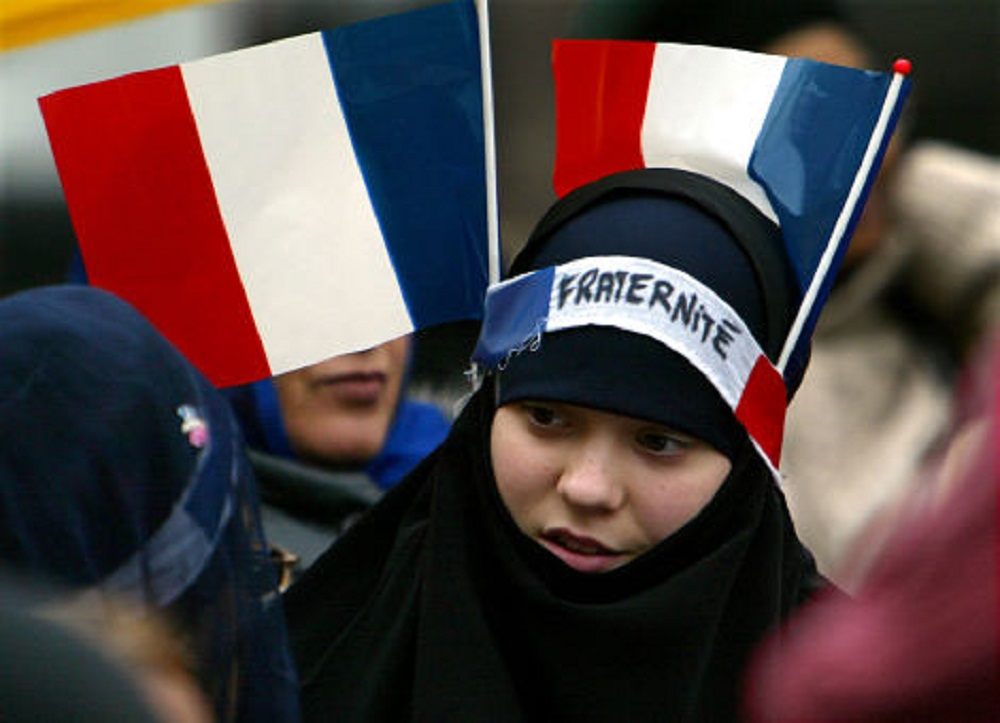
A young woman in France protests for her right to wear hijab; image source: Wikimedia Commons.
As far as looking good, who says modesty doesn’t equate to “looking good”? Why can’t a women be modest and beautiful? Why does she need to show more of her body in order to be “beautiful”? Looking good means different things for different women – and a big part of how that’s influenced has to do with society teaching us that we must look and dress a certain way in order to “look good.”
Although those of us who wear hijabs try to abide by guidelines of hijab (as dictated by Quran and hadith), we remain individuals with our own sense of style. Muslim women across the globe have a range of cultural styles that include hijab and various styles of modest dressing. Also, designers and fashion-related media are increasingly catering to covered Muslim women, demonstrating an appreciation for modest fashion and consumers who want to merge faith and style.
3. Do you ever get to take it off? What about at home?
As with any article of clothing, of course Muslim women can, and do, remove their hijabs. Dressing within the parameters of hijab and modest dressing (e.g., avoiding tight clothing, opaque fabric, covering everything but the face and hands) is more about traversing in public and proximity to people whom we chose not to have access to our beauty and body. Therefore, a Muslim woman may remove her hijab at home and in spaces where only other women, young children or men with whom they are in a marital relationship with or whom they cannot marry (ie: father, brother, uncle, grandfather, etc.).
A woman can decide to uncover at a friend or family member's houses with the above parameters or to remain covered.
4. Can’t you show a little hair in the front? Do you get in trouble if stray hairs show?
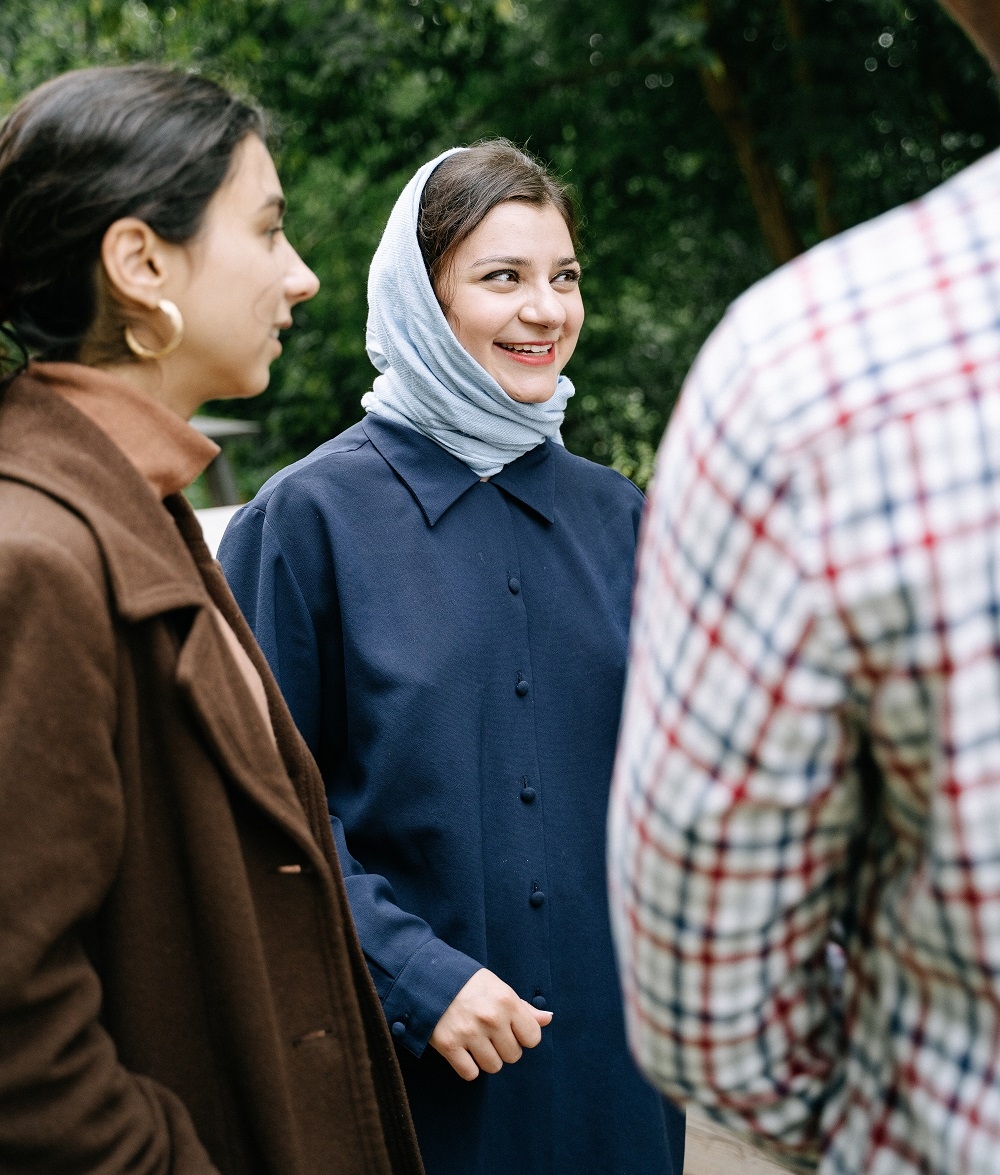
Image source: Pexels; photo by Ivan Samkov.
Asking a Muslim woman who covers to compromise her religious observation is offensive (if you’re asking her to show a little hair). Many Muslim women remain committed to observing hijab as a way of demonstrating their obedience to their Creator, and to ask them to show a little or wear tighter clothing is a request that they make concessions to satisfy others’ aversions to their dress. Now, if a Muslim woman styles her hijab in a way that some of her hair shows, that is something that is between her and Allah (S), especially in regards to her intentions around hijab. If her hijab slips and some stray hairs show, well that happens. None of us are perfect. We believe that Allah (S) is all forgiving and ever-Merciful. We know He wouldn’t punish us because our hijab slipped back by accident.
5. Why do you have to cover if it’s men who can control themselves? Do men have a say in your hijab? And what about men – do they have rules about covering up?
Men do not play a vital role in many Muslim women’s decision to wear hijab. Outside of repressive regimes and government bans, hijab remains a woman’s choice to obey their Lord. They wear it as an act of worship, not in compliance to the male gaze.
As for men and covering up, yes there are rules for them as well. Although it is common for people to relate hijab with women, there are also modest guidelines for men. Check out the links below for more information.
6. Are you bald underneath?
One’s hair, or lack thereof, has nothing to do with observing hijab. It is not a matter of covering perceived flaws and imperfections.
7. Does wearing hijab set an expectation that you'll be more submissive to your husband?
Wearing hijab doesn’t set expectations. At its essence, wearing hijab is about the relationship one has with Allah (S), and obeying Him (S) and only Him. It’s about taking that step to be known as Muslim to those around you through your physical appearance (although how you live your life and your character as a Muslim is more important, but that’s another topic). If other people have expectations or prejudices when seeing a covered Muslim woman, that’s on them. Wearing hijab should not be and is not an indication of submission to one’s husband, family or anyone outside of God.
8. Don't you want to fit in?
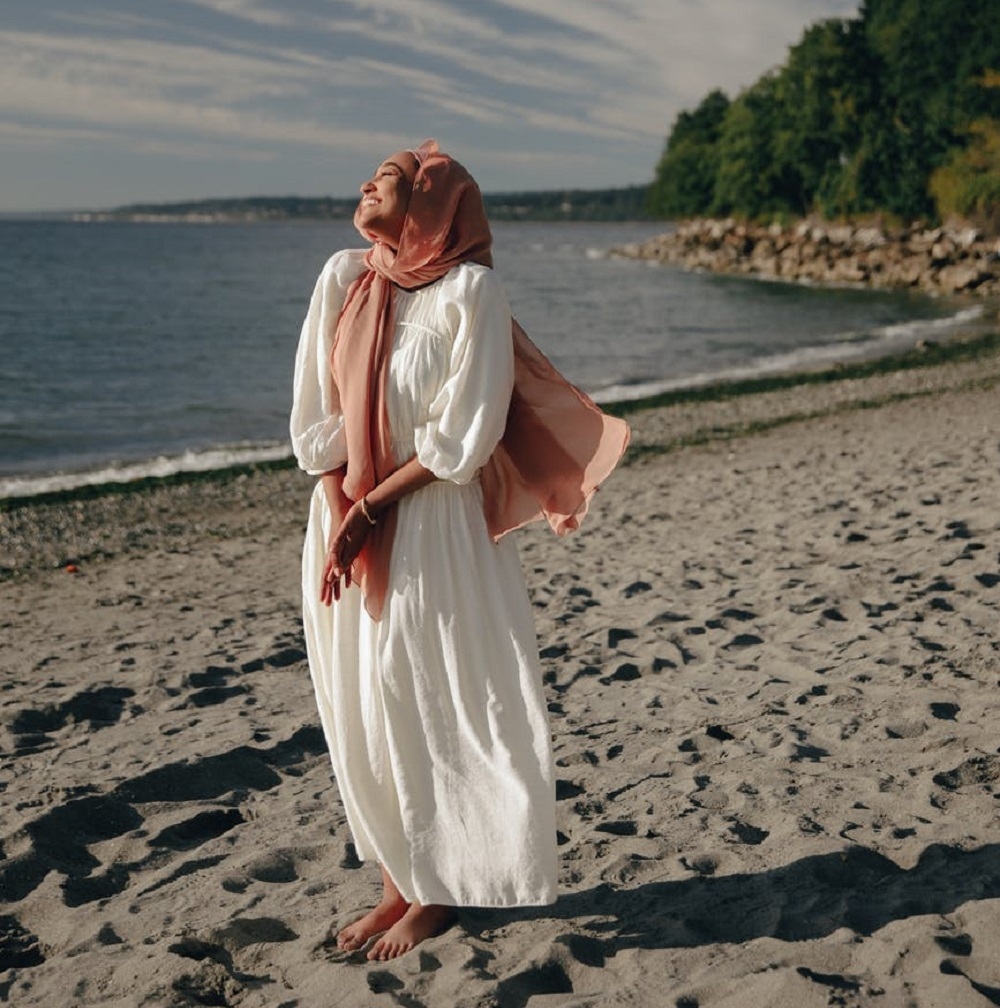
Image source: Pexels
Fit in with whom? For many Muslim women, obeying their creator and earning Allah’s (S) pleasure is their ultimate spiritual and personal priority. We navigate through society confident in our personal, professional and social interactions. Sure, like any person, we may experience feeling othered or like an outsider in a group or community, but – like with any person – that could be for many reasons. However, we refuse to allow it to keep us from being our authentic selves or practice our faith in ways that are personal between ourselves and Allah (S).
9. Why do young girls have to wear it? Doesn’t that just sexualize things?
Young girls who have not reached puberty don’t have to wear hijab, but many may choose to wear it to emulate the women in their lives. A Muslim mother may encourage her daughters to wear hijab (on different occasions or in different settings, or if their girls want to) in preparation for when they are older and it becomes incumbent on them.
Eventually, most young women will need to decide at what level they will observe hijab (or if they will wear it at all). Will they cover their heads or not cover them but dress modestly? As we have addressed in previous questions, hijab is about (among many things) modesty but not about sexualizing ourselves by the very act of covering our hair and bodies. The two can be mutually exclusive. Growing up seeing Muslim women in hijab and having it as a part of a young girl’s life at an early age can make that journey to hijab easier.
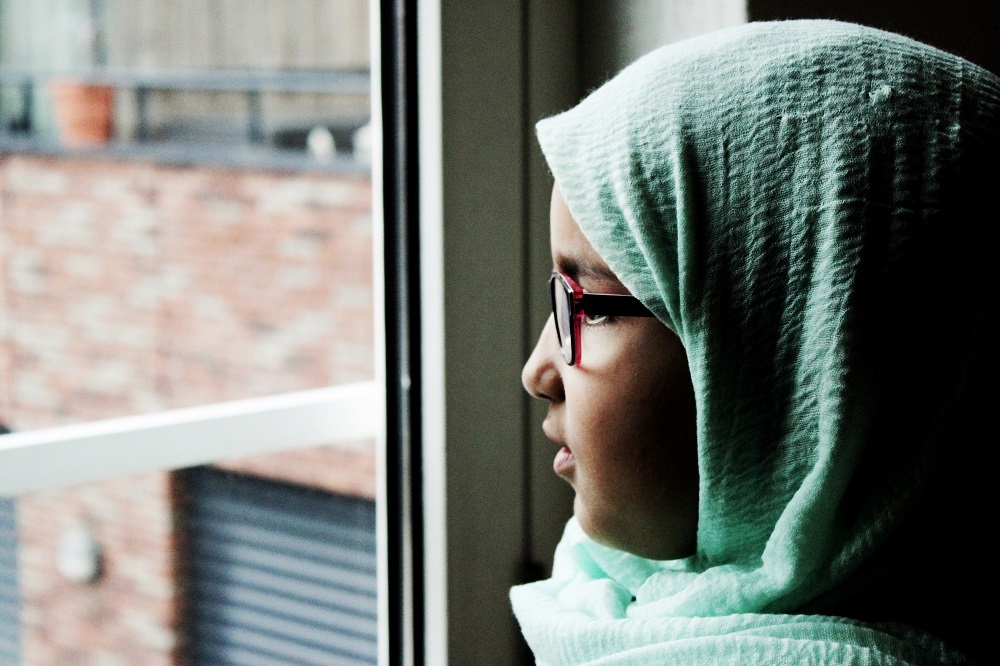
Image source: Pexels
A young girl wearing hijab is not sexualizing. If someone thinks that way, they need to reexamine their thought processes. It’s not about sexualization at all, but rather about empowerment and our relationship with our Creator. Hijab doesn't exist to make girls feel smaller or submissive or "ready for marriage" or any of the other misconceptions that keep coming up. It represents their growing power in their womanhood to be connected to God more deeply. It does not invite people to consider them in a sexual way.
10. Some women wear it and some don’t. Some cover themselves up entirely, face and all. Others cover their hair and wear regular clothes – what’s up with that?
We are all humans navigating through life and on individual spiritual journeys. Similarly to Christian women who choose to be nuns and dress with full coverage and ones who choose not to, how (and if) a woman decides to wear hijab and how she dresses modestly is up to her.
So yes, depending on our individuality, how we are raised, our culture, our beliefs, the influences in our lives – we wear hijab, we don’t wear hijab, we wear niqab (the face veil), we don’t wear it, we wear abayas and burqas or we pair our hijab with dresses, pants, sweaters and/or tunic tops. We wear our hijab long and loose in a drapey-fashion, sometimes we tuck it in, and some of us wear it turban-style. Most of us know what the guidelines and recommendations are in how we should wear hijab from Islamic scripture. Still, as with any person, group or community, Muslim women who wear hijab do it in various ways.
The bottom line, Muslim women are not a monolith in their observance of hijab or any other act of faith.
11. Can't you take it off for work?
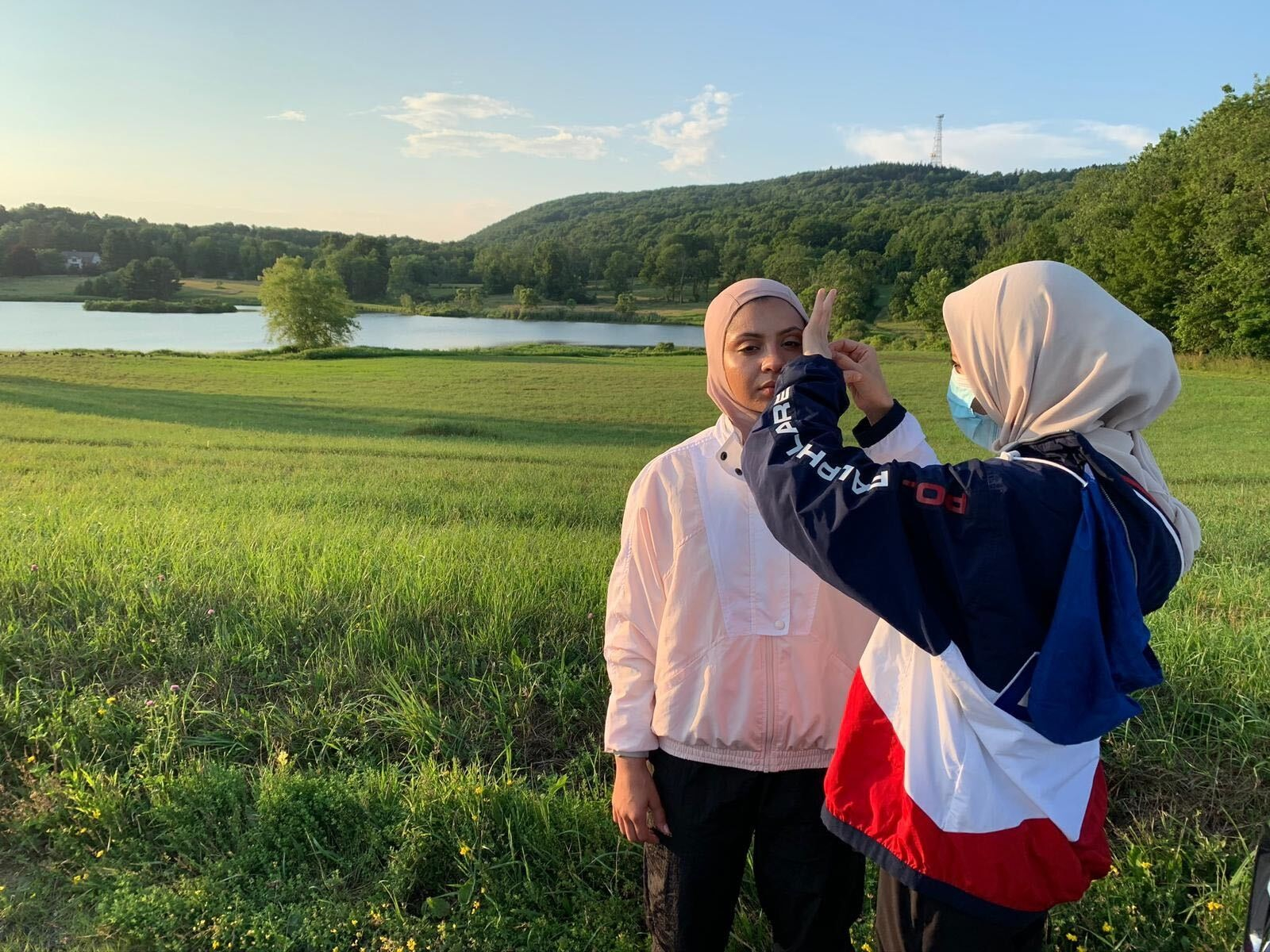
HH CEO Melanie Elturk helps cross country runner Noor Alexandria Abukaram adjust her sport hijab.
Muslim women should not have to compromise their individual and spiritual observance to earn a paycheck. As Muslim women expand their expertise and enter different fields, it has become evident over and over that hijab is not a deterrent to their ability to do their jobs. Therefore, they must consider requests to remove hijab carefully and assess if it is from a genuine concern about one’s ability to do their job or an aversion to their religious observance. And, there are many ways one can safely wear hijab and work in a variety of environments, if safety is a concern.
One example is our design and tech work around our Haute Hijab Sport collection, our ongoing #CantBanUs campaign and our work with various high school sports associations to educate on how an athlete can wear hijab and participate in sports, which has helped lead to various rule changes.
What questions have you been asked about your hijab? How can we help you with the answers? Share with us in the comments below!
Subscribe to be the first to know about new product releases, styling ideas and more.
What products are you interested in?

